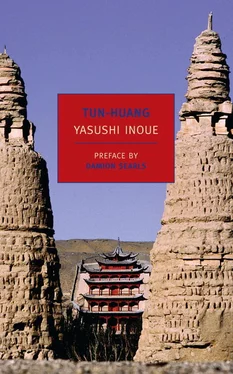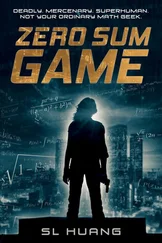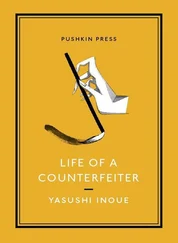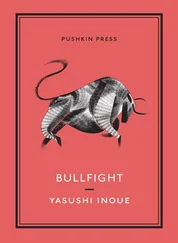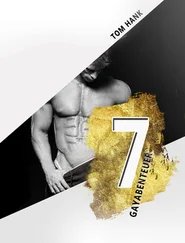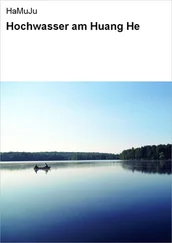The road running along the city wall seemed unending. As he plodded on in the dark, Hsing-te began to wonder whether it would ever end. Finally, however, the two men reached an area with more light. It was not really lit up, but at least Hsing-te could make out forms in the dim light.
Before him a narrow path stretched ahead, and on both sides were rows of low-roofed buildings, shaped differently from the civilian houses and surrounded by walls. Here and there in front of these buildings he could see a large number of animals moving. Hsing-te just stood there looking at the animals, and then gradually became aware of his surroundings. Kuang had disappeared, and Hsing-te realized he, too, must get out of the way; the number of animals coming out of the buildings was increasing every minute, and the enormous herd was moving slowly toward him.
Hsing-te was gradually pushed out into a large square beside the city wall by the herd of animals. He had not known until then that such a large square existed within the town. A large number of camels had been led there, and Hsing-te could now see ten or more strangely dressed men moving among the animals and loading them.
After some time, Hsing-te heard Kuang’s voice. His shouting could be heard off and on as he went among the men and animals. Hsing-te walked in the direction of the voice. As he didn’t want to lose sight of Kuang again, Hsing-te stayed beside him. Kuang spoke many languages. When he spoke in Uighur, Turfan, or Hsi-hsia, Hsing-te could understand, but he had no idea what the other tongues were. Whenever he heard a strange tongue, Hsing-te asked what language he was speaking. At first Kuang told him that it was the language of Khotan, or Lung, or Asha, but finally he seemed to lose patience and shouted, “Keep quiet, will you?” and grabbed Hsing-te by the collar again. As before, Hsing-te was lifted off the ground and thrown unceremoniously on the sand.
The moon had risen and lighted up the area. The hundred camels and the ten or so men, casting black shadows on the gray sand, continued loading throughout the long night.
There was nothing for Hsing-te to do. Leaving Kuang, he slowly walked among the camels and men to watch them work. He wondered what was in the packs. At times he was readily understood, but at other times the men could not understand him even after he had exhausted all the languages at his command. Even so, he did learn that these traders were going to transport jewels and Persian rugs, animal skins, cloth, spices from various western countries, seeds, and other things to the east.
When the hustle and bustle finally subsided and the loading seemed finished, Kuang’s booming voice, announcing their departure, resounded among the animals. The caravan opened the South Gate, which was normally bolted, and left the city. The hundred camels got into a single long line, and armed men on horseback were posted here and there. Hsing-te rode on a camel near the tail of the caravan.
“Where are my things?” he asked Kuang, who rode just in front of him.
“They’re loaded on the camel you’re on. If you ask me any more questions about your goods, you’re in for it!” Kuang yelled at him.
It was still some time before dawn, and the dim moon still cast its light on the vast plains.
It took fifty days for Kuang’s caravan to travel from Kua-chou to Hsing-ch’ing. While he had been living in Kua-chou, Hsing-te hadn’t known it, but throughout the western territories minor skirmishes were being fought between the Hsi-hsia and the Turfans. Whenever the caravan came upon fighting, the men either waited until the battle was over or detoured around it. Many days were thus wasted.
What surprised Hsing-te most about Kuang was that he had influence with both the Hsi-hsia and Turfan armies. As might be expected, Kuang avoided the battlefields when fighting was in progress, but when the two armies were facing each other without having begun the battle, Kuang would calmly ride through both army camps. Or he would travel between the two camps, his brightly dyed banner carried high, with the letter “Vai” on it, symbolizing Vaisravana, the guardian god of the Wei-ch’ih family, and signaling to everyone that he and his caravan were passing through. At such times, both armies would wait until the caravan had gone by and would then commence fighting.
Kuang was not particularly concerned with the skirmishes between the Hsi-hsia and the Turfans that blocked his way, but he was irritated when he had to pass through the various walled cities. At Su-chou, Kan-chou, and Liang-chou, Hsing-te noticed Kuang was in a very bad temper, ranting and raving. In each case, the caravan was kept waiting for two or three days until their traveling tax was cleared. Before the Hsi-hsia invasion, Kuang had paid Uighur officials only, but now not only did he have to pay the Hsi-hsia who had taken over but also the Uighur officials who still held real control. For that reason, the fifty cases of jewelry on the camels decreased by one-fifth.
During this long trip, Hsing-te became thoroughly familiar with the young caravan leader’s temperament, although they had been complete strangers at the beginning. Kuang was a man who would do anything for money. His profession was that of a trader, but in reality he was hardly less than a pirate or a blackmailer.
Whenever he found a small caravan, he would approach it with two or three of his men and, after some negotiation, return with all of the caravan’s goods. Hsing-te had a good view of these operations. Kuang always kept with him a few men from the Lung tribe, who lived in the mountains south of Sha-chou, and from the Asha tribe, who had settled west of Sha-chou; both were known as highwaymen.
Furthermore, Kuang seemed to fear nothing. There were things which angered him or annoyed him, but nothing seemed to arouse his fear. There was an arrogance about him which until the moment he died would not allow him to acknowledge the fact that death could come to him.
Hsing-te knew the attitude of this ruthless young man stemmed from pride in his family name. The brilliance of the Wei-ch’ih dynasty had now disappeared from the earth. The man could be either very courageous, or very cruel. There was no doubt that his pride in his royal background made him willful, even to the point of attacking other caravans in the desert. In deference to the power and glory of his ancestors, he could not be satisfied unless he took every last item from his victims.
Hsing-ch’ing had completely changed in the three years since Hsing-te had been there. The population of the city had increased tremendously. The shopping area was bustling — large new shops were continually being built — but the city had completely lost that ancient walled town tranquility it had possessed even three years before. This vitality had flowed beyond the walls, too, and a new settlement was being established near the eleven-storied North Pagoda. The area near the West Pagoda was no different, nor was the north-western sector, where Hsing-te had once lived in the temple.
In step with Hsi-hsia’s expansion, Hsing-ch’ing, too, was developing into a large city. Hsing-te noticed, however, that the clothing of the people had become shabbier and plainer. He presumed this was due to heavy taxation caused by the war with the Turfans. Three years before, Hsing-te had often heard that many temples were to be built at the foot of the Ho-lan mountains thirty miles west of the city, but by now such rumors had subsided. Funds for the temples had been appropriated by the military.
As before, Hsing-te lodged in a large Buddhist temple with a sizeable dormitory in the northwest sector of the town. This building looked more like a school than his former residence, and there were many teachers and students. The number of Chinese instructors had also increased. He also met many of the Chinese he had known before while studying Hsi-hsia writing. What surprised him most since his arrival at the temple was that the Hsi-hsia-Chinese dictionary he had compiled had been bound into a book and many copies had been made of it. An elderly person of almost sixty named So, who had lived for years at this temple and had worked on the Hsi-hsia writing, brought one of the books to Hsing-te and asked him to write the title for it. He himself was a better bureaucrat than scholar, and he now had the longest tenure and highest position in this department. He had learned of Hsing-te’s return by chance. They were to use the name of a Hsi-hsia man who worked in the department as author, but since Hsing-te had contributed the most work, So wanted at least to give him the right to title the book.
Читать дальше
